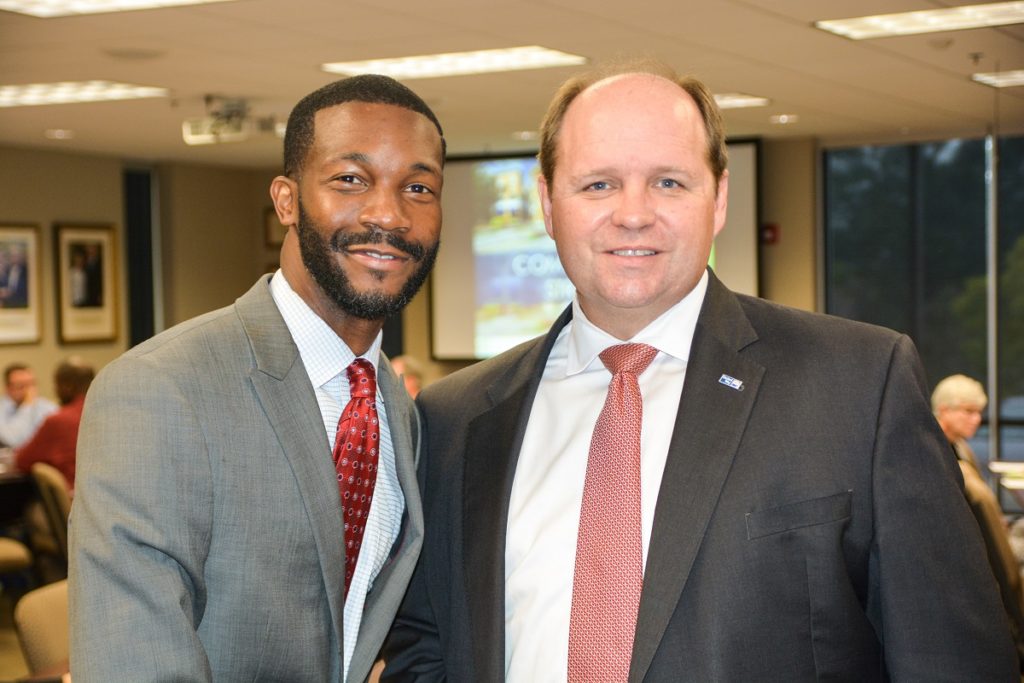The Complete Streets strategy for Birmingham reached a new mile marker last week. An interactive workshop hosted by United Way of Central Alabama (UWCA) and facilitated by Smart Growth America and the National Complete Streets Coalition, brought together a number of key stakeholders committed to improving the safety and accessibility of Birmingham streets.

Birmingham Mayor-elect Randall Woodfin and City Council Member-elect Darrell O’Quinn were among the participants on hand to learn about tools and strategies to advance economic, health and community vibrancy goals through Complete Streets, which is a method of comprehensively planning, designing and building streets, sidewalks and bike lanes for all users.
Street and sidewalk improvements were consistently mentioned as a priority in the recent mayoral and city council campaigns, and both incoming officials have embraced Complete Streets as a strategy for improving safety and advancing a connected, multi-modal transportation system. “If we’re going to repave and resurface our streets, it should include reconfiguration,” said Woodfin. “We should make sure it’s accessible, ADA compliant, walkable and bikeable.”
Workshop discussions focused on how to create a safe and functional transportation network for everyone in the community, including drivers, cyclists, transit riders and pedestrians of all ages and abilities. “This workshop will help Birmingham build on and highlight the city’s vibrant character, while fostering economic prosperity, livability and opportunity for all people of all abilities,” said Emiko Atherton, Director of the National Complete Streets Coalition and one of the workshop facilitators.
Creating safe neighborhoods that allow and encourage people to be physically active is one of the priorities of the Bold Goals Coalition, which is working to ensure that all five counties within Central Alabama are ranked among the 10 healthiest counties in the state by 2025. Representatives from more than a dozen organizations from the Bold Goals Coalition attended the workshop, including UWCA, the City of Birmingham, American Heart Association, UAB, AARP Alabama, Birmingham-Jefferson County Transit Authority, Lakeshore Foundation, Jefferson County Department of Health, REV Birmingham, Regional Planning Commission of Greater Birmingham and Alabama Department of Transportation.
“The people in this room are experts in this matter of assisting and helping us move forward,” said Woodfin. “We have an opportunity to catch up and improve the quality of life for our city by investing in Complete Streets.”
Click here to learn more about Complete Streets Birmingham and stay involved in the work to make our streets safe and accessible for everyone.

